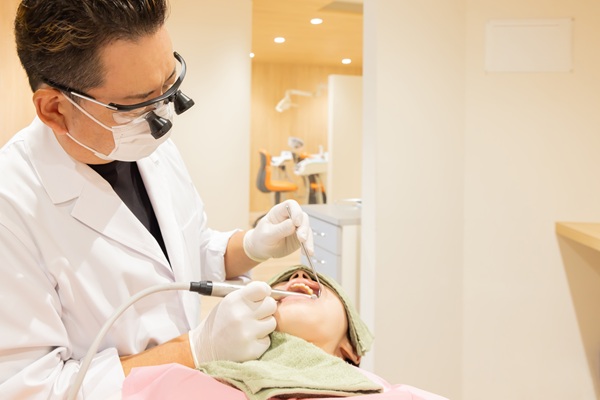What to Expect When Visiting a TMJ Dentist

A TMJ Dentist is a dental professional who helps diagnose and treat problems with the temporomandibular joint (TMJ), which connects the jaw to the skull. Issues with this joint can cause pain, stiffness, and discomfort in the jaw. They can also lead to headaches, earaches, and trouble chewing. Visiting a TMJ dentist is an important step in finding the cause of these symptoms and getting the right treatment to improve oral health and overall comfort.
What does a TMJ dentist do?
A TMJ dentist specializes in the health and function of the temporomandibular joint. According to Johns Hopkins Medicine, this joint plays a key role in everyday activities like chewing, speaking, and yawning. When the joint is not working correctly, it can cause a condition called TMJ disorder, or TMD. This condition can result from various issues, such as grinding teeth, an injury to the jaw, arthritis, or a misaligned bite. A TMJ dentist works to identify what is causing the problem and create a treatment plan to help relieve symptoms and restore normal jaw movement.
What to expect during a consultation with a TMJ dentist
In order to determine the most appropriate treatment to address TMD, the TMJ dentist must conduct a thorough evaluation. The dentist will ask the patient about their symptoms, including when they started and if anything makes them worse or better. It may be helpful to list this information on their phone or a sheet of paper so nothing is forgotten. This information helps the dentist understand the problem and what to look for during the evaluation.
Next, the TMJ dentist will perform a physical examination. Common signs they check for are tenderness, swelling, or any difficulty moving the joint. The dentist may ask patients to perform several movements, such as opening and closing their mouth or moving their jaws from side to side, to see how well they function. If the dentist requires more information, they may employ X-rays or other imaging diagnostic tests to get a more detailed picture of the joint and surrounding areas.
Common treatments from a TMJ dentist
After the evaluation, the TMJ dentist will explain their findings and recommend treatment options. The treatment plan depends on the cause and severity of the TMJ disorder. For minor issues, the dentist may suggest simple changes, such as eating softer foods, practicing relaxation techniques, or performing targeted exercises to help the jaw muscles. In some cases, the dentist may create a custom mouthguard or splint to wear, which can reduce teeth grinding and take pressure off the joint.
For more severe cases, additional treatments may be necessary. These might include physical therapy to strengthen and relax the jaw muscles, medications to reduce pain or swelling, or orthodontic treatments to fix bite alignment issues. If the problem does not improve with these methods, the dentist may refer the patient to a specialist for advanced care.
Find relief today
Seeing a TMJ dentist can provide relief for those dealing with jaw pain, stiffness, or other symptoms of TMJ disorders. If jaw discomfort or related symptoms affect your daily life, scheduling an appointment with a TMJ dentist in the Huntsville area is a step toward finding solutions. Contact René A. Talbot, DDS to receive a care plan to improve your quality of life.
Request an appointment here: https://www.yourhuntsvilledentist.com or call René A. Talbot, DDS at (256) 382-6690 for an appointment in our Huntsville office.
Check out what others are saying about our dental services on Yelp: TMJ Dentist in Huntsville, AL.
Recent Posts
Want to know what symptoms are associated with TMJ? Many symptoms are linked to this commonly diagnosed jaw-related disorder, including jaw pain. However, other symptoms are important to be aware of as they can help the general dentist make a diagnosis and treatment plan. Many are surprised to learn that a general dentist can diagnose and…
If you experience soreness or pain in the jaw, you may want to talk with your dentist about TMJ treatment and whether the condition is causing your pain or other issues. Temporomandibular joint dysfunction (TMJ) is a serious condition that causes stiffness in the joints of the jaw, pain, soreness, swelling, and loss of movement.…
TMJ disorder, or temporomandibular joint disorders, refers to a group of issues related to mobility and discomfort around the jaw joints. The temporomandibular joints are the joints that link the lower jawbone (mandible) to the skull. More than any other joint in the body, these flexible joints are constantly in use, performing actions such as…
TMJ disorder is a common issue that can result from teeth grinding and other dental concerns. Most instances are minor, but TMJ that is left untreated can linger or worsen into a more serious issue. Many instances of jaw pain are caused by TMJ, and it is helpful to understand the symptoms of TMJ and…


